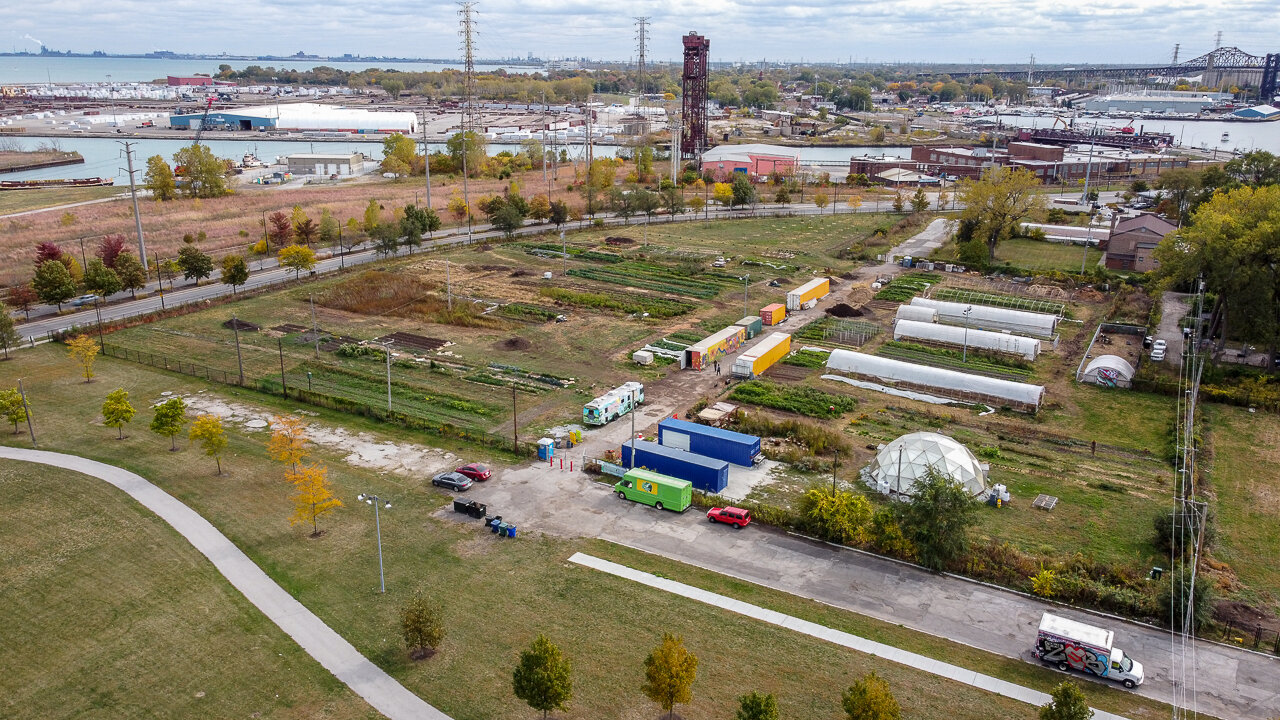
Finalist: Climate Change Adaptation
Turning food waste into rich soil to produce fresh food and job opportunities
Chicago, US
The Challenge
In Chicago, citizens produce nearly 55 million pounds of food waste each month which are clogging up landfills and polluting the air, water and soil. Many local landfills are expected to reach full capacity within 10 years.
In addition, demand for locally grown food is increasing, but there is an inadequate supply of clean, healthy soil for use by local, urban growers and farmers. Soil in Chicago is contaminated with high levels of lead, toxins from gasoline and heavy metals from factories.
In the Auburn Gresham area of South Chicago, access to fresh, local food is particularly tough. There are high poverty rates which contribute to high crime and one of the highest food insecurity rates in Chicago. 96% of local residents are Black, 21% of them are unemployed and they have a five year lower life expectancy than other Chicagoans.
The Innovative Project
A vacant 9-acre brownfield site is being transformed into a Renewable Energy and Urban Farm Campus in the Auburn Gresham area of South Chicago. The new campus presents an opportunity to create jobs, divert food from landfill, produce nutrient-rich soil and increase local fresh food production.
The onsite 2-acre anaerobic digester will create 25 jobs and divert inedible food waste from landfills to produce clean, renewable energy and nutrient-rich soil, which will be used to grow more fresh, local food on the rest of the site. The seven-acre Urban Farm Campus is being designed in a community-led charrette process with local people, stakeholders and students from the nearby Simeon Career Academy. It will include a visitor and STEM education centre, greenhouses, a fresh produce market, and an urban farm.
The Partnership
At an event in April 2021 hosted by The Institute for Policy and Civic Engagement (IPCE) Climate Justice on “Creating a Circular Economy for Climate Action“, the University of Illinois in Chicago and Urban Grower’s Collective sustainability team had an open discussion about how the university’s resources could support the climate justice activities locally. The event initiated a university-community partnership to help scale the size of anaerobic digesters and bring food waste to the Green Era digesters. The partners hold equal roles in conducting research, disseminate findings, and increasing engagement with community work.
Urban Grower’s Collective has a longstanding relationship with the community as a BIPOC-led non-profit organisation and already oversees 8 farms in Chicago. Their expertise in working with communities will give the University of Illinois in Chicago insight on conducting community participatory research in an ethical and effective manner that cultivates university-community partnerships.
Green Era, who will operate the anaerobic digester, is an organisation, composed of biotechnology, green energy, and urban growing experts who are dedicated to sustainability and social justice. Green Era’s mission is to create more sustainable communities by supporting local food production through better management of inedible food waste, landfilling, and access to fertile soil.
The Impact
The partners are also producing an asset map of climate justice work within the university and surrounding communities where the partner is located.This will identify best practices for university-community partnerships, that address community partner concerns, and identify streamline pathways to facilitate relationships to accelerate climate justice.



